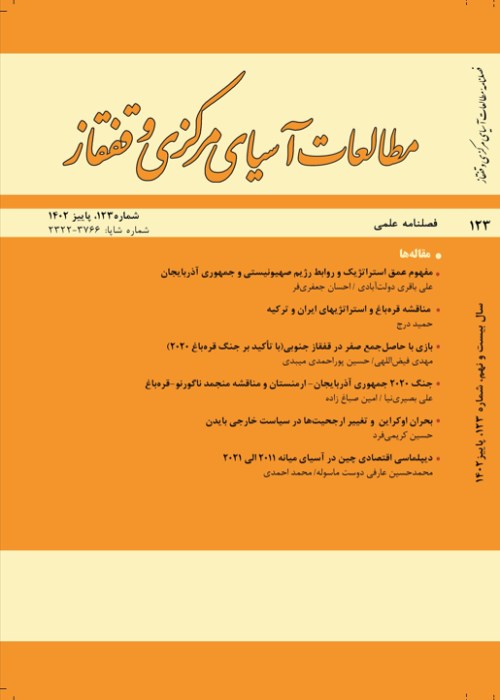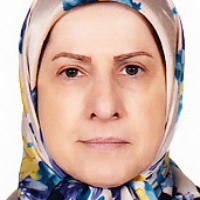The Role of Russia in Iran's Economic CooperationWith the South Caucasus (2014-2019)
Since the independence of the three South Caucasus countries (Armenia, Azerbaijan Republic and Georgia) in 1991, the Islamic Republic of Iran has tried to have constructive relations with the mentioned countries in various fields by adopting a balanced policy. From Iran's perspective, the importance of the South Caucasus, in addition to its historical and cultural commonalities, lies in its neighborhood status and high potential for economic cooperation. However, due to the impact of technical and geopolitical factors, the economic relations between Iran and these countries, despite their great potential and advantages, have never reached its desired point. Although, US and UN sanctions against Iran have been a major obstacle to expanding Iran's economic cooperation with its neighbors, at the same time Russia's move to impose some restrictions on regional rivals, especially in the energy sector, and its impact on Iran's economic cooperation with the South Caucasus cannot be ignored. With the onset of the Ukraine crisis in 2014 and escalating tensions with Europe and the United States that led to widespread sanctions against Russia, Moscow has turned its attention to cooperation with Eurasia and its neighbors.On the other hand, Iran's nuclear deal with the P5 + 1 in 2015 and the lifting of UN sanctions paved the way for improving cooperation between Iran and its neighbors, including Russia and the South Caucasus. Accordingly, given the variable of Russia as the most important player in the South Caucasus, the authors seek to answer the following questions: Has the change in Russia's approach to regional cooperation with neighbors since 2014 affected Iran's economic relations with the South Caucasus? And if so, what was the effect? The authors argue that,Russia has played a positive role in strengthening Iran's economic cooperation with the three countries of the South Caucasus. Using the explanatory and analytical method, the developments in the relations between Iran and the countries of the South Caucasus from 2014 to 2019 are examined according to the Russian factor.
- حق عضویت دریافتی صرف حمایت از نشریات عضو و نگهداری، تکمیل و توسعه مگیران میشود.
- پرداخت حق اشتراک و دانلود مقالات اجازه بازنشر آن در سایر رسانههای چاپی و دیجیتال را به کاربر نمیدهد.



